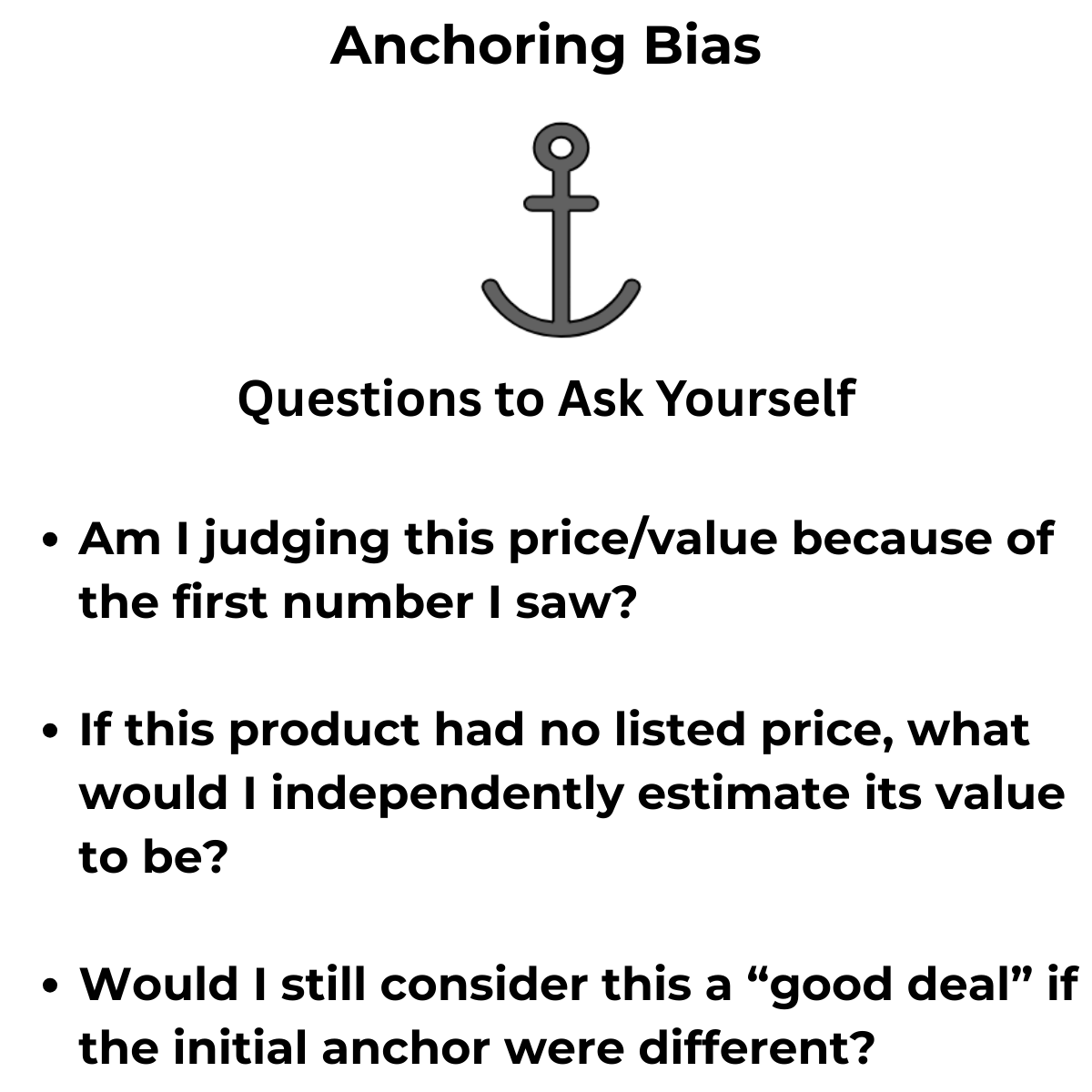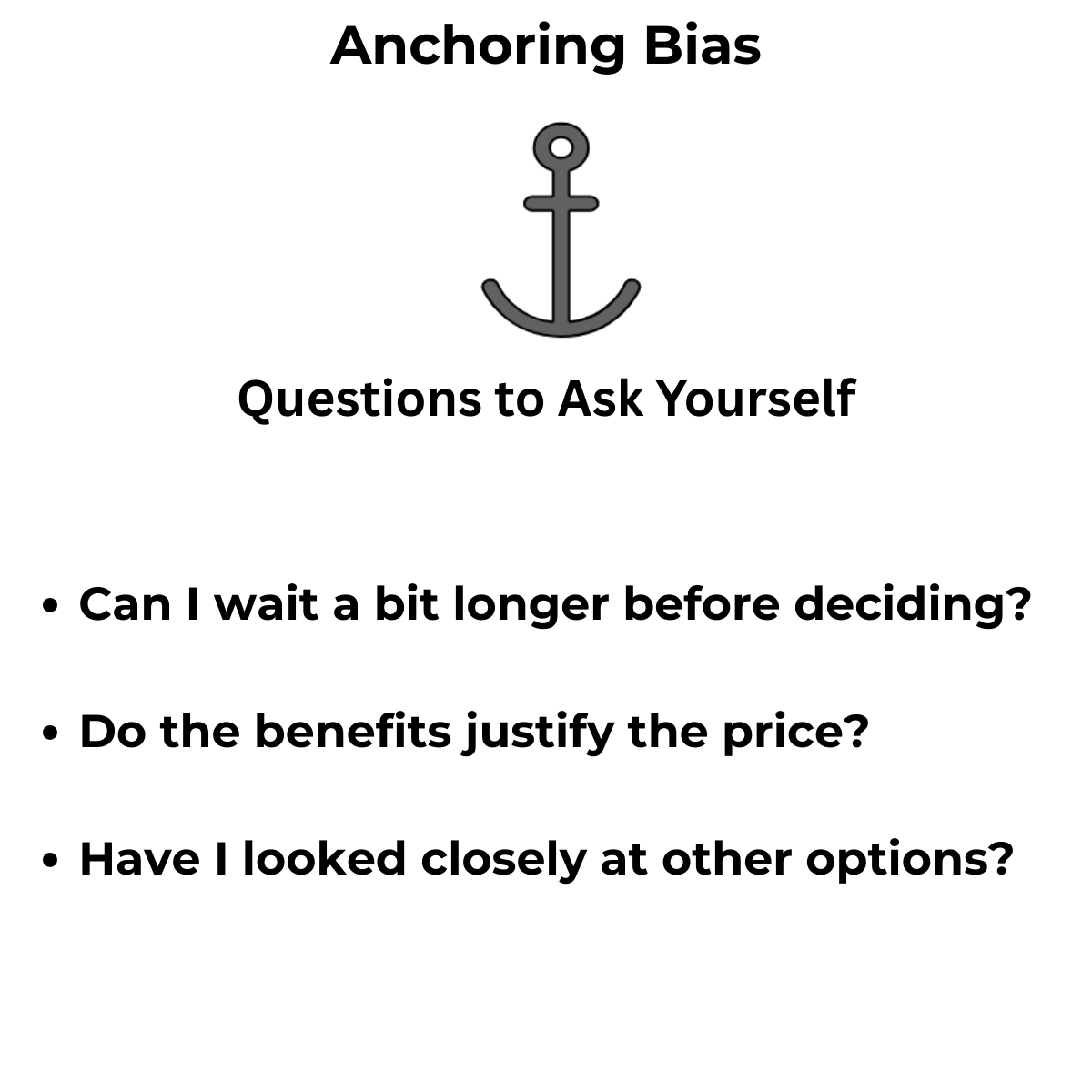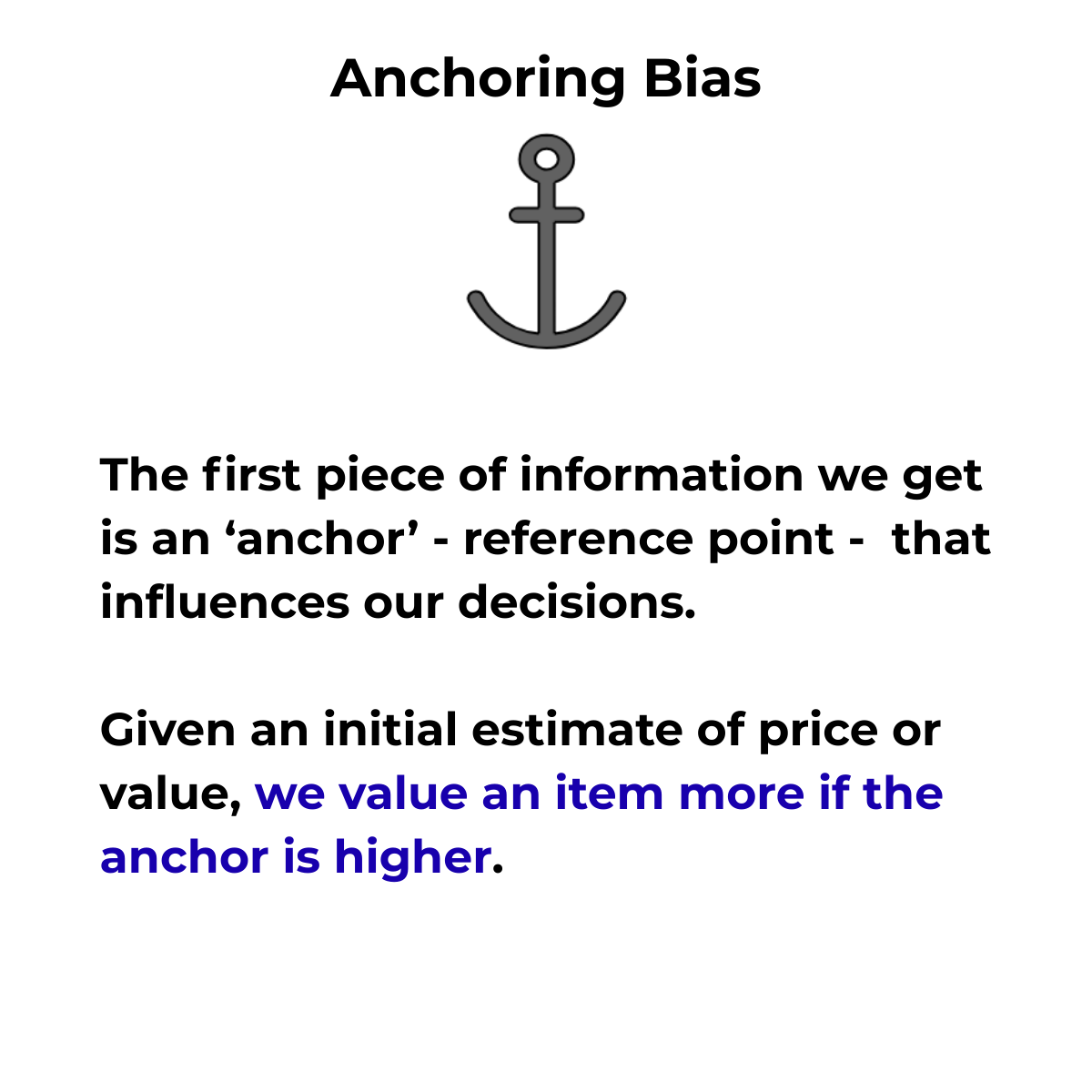
Being humans, we often fool ourselves, both in business and in our personal lives. If we are aware of thinking traps, we are less likely to fall into them.
One thinking trap is the "anchoring bias".
📝 The first piece of information we get is an ‘anchor’ - a reference point - that influences our decisions.
💰 Given an initial estimate of price or value, we value an item more if the anchor is higher.

⚓ Anchoring Bias - Example: Real Estate Listing Price 🏡
👥 Estate agents asked to value the same house are split into 2 groups.
🖼️ The photos and details are the same for both groups.
💵 They are given 2 initial asking prices:
📌 Group A: asking price is $400,000
📌 Group B: asking price is $500,000
➡️ Group B valued the house at a higher value.
⚓ Anchoring Bias - Example: Retail Discounts 👟
🛒 Shoe advertisement:
💵 $300
🔖 50% off - now only $150!
➡️ People tend to value the shoes at $150 or more, even though similar shoes sell for less.
⚓ Anchoring Bias - Example: Product Bundling 💳
📦 Software service offers:
🥇 Gold plan $200 per month
🥈 Silver plan $100 per month
🥉 Bronze plan $50 per month
➡️ People usually choose the silver plan, as they perceive the gold plan as expensive and the silver as giving good value.
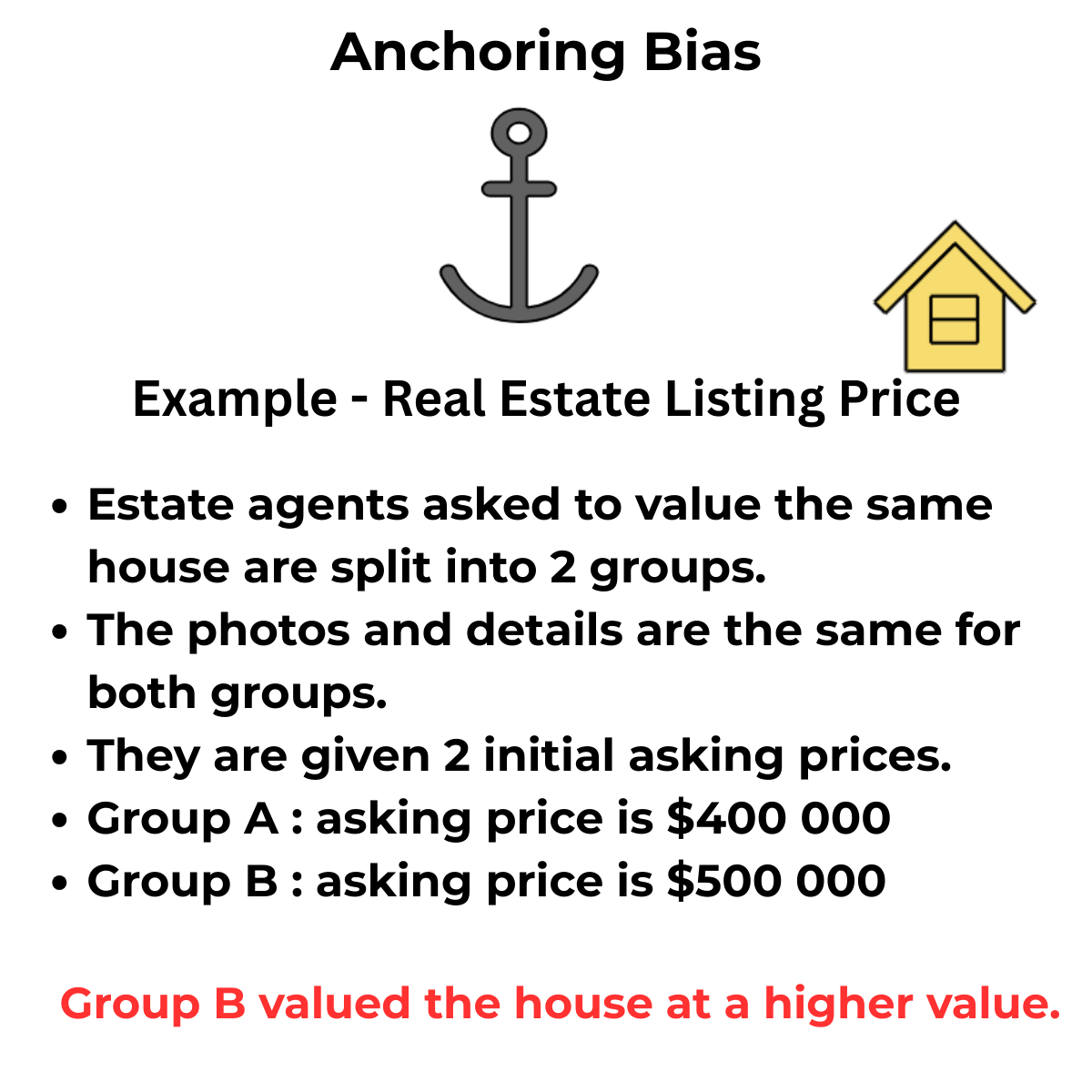
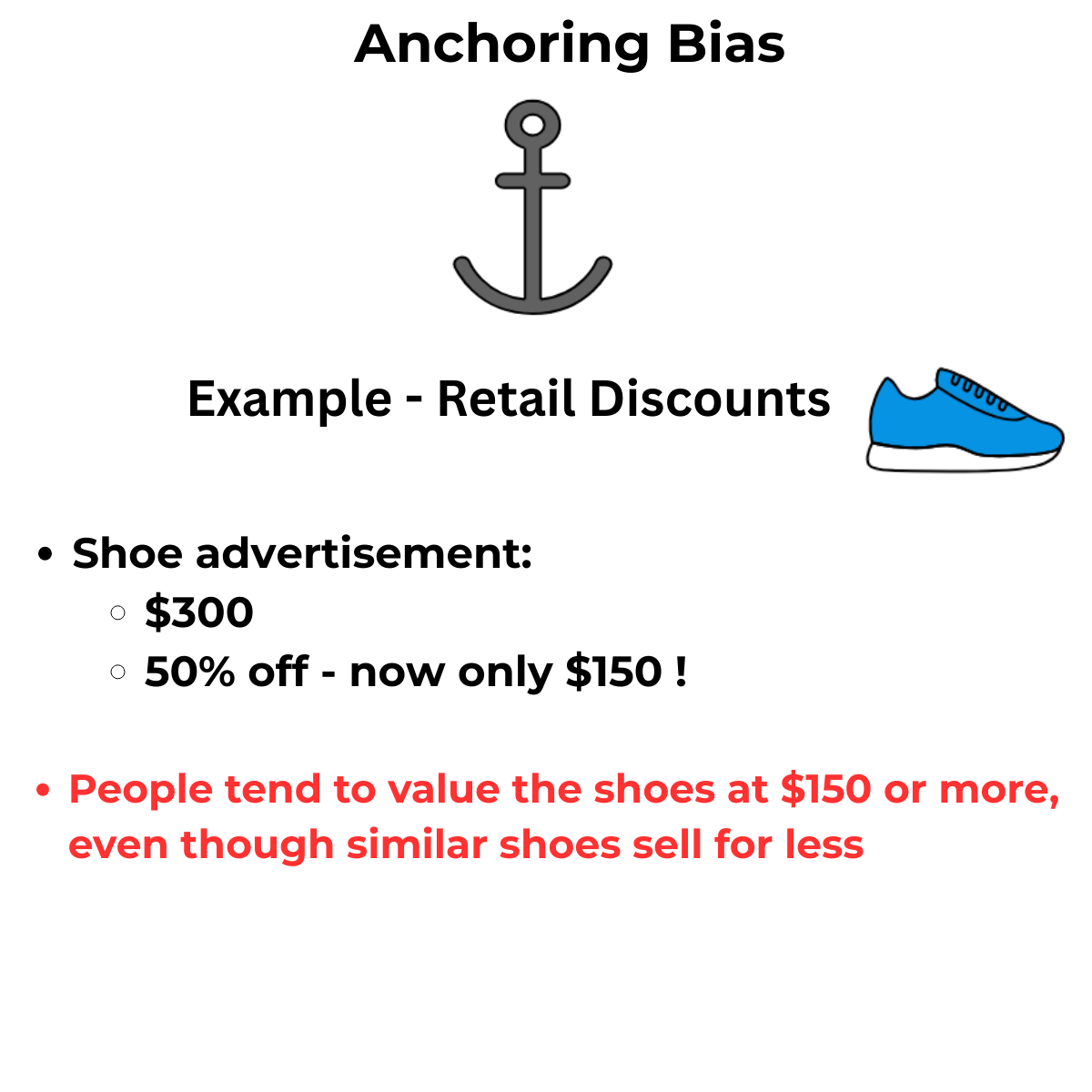
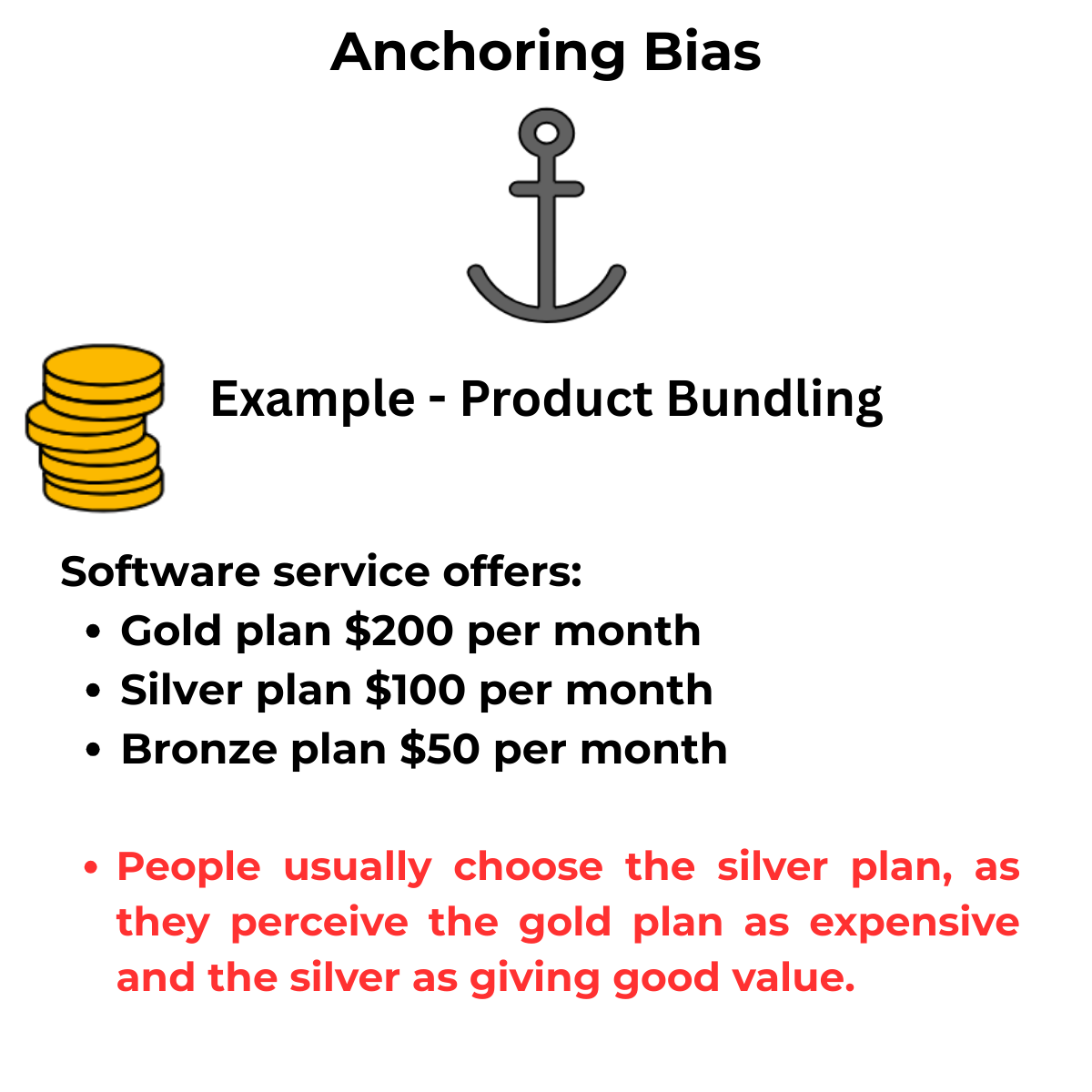
❓ Questions to Ask Yourself:
⚓ ❓Anchoring Bias - Questions to Ask Yourself 🤔
❓ Am I judging this price/value because of the first number I saw?
❓ If this product had no listed price, what would I independently estimate its value to be?
❓ Would I still consider this a “good deal” if the initial anchor were different?
⚓ ❓Anchoring Bias - More Questions to Ask Yourself 🧐
⏳ Can I wait a bit longer before deciding?
⚖️ Do the benefits justify the price?
🔍 Have I looked closely at other options?
